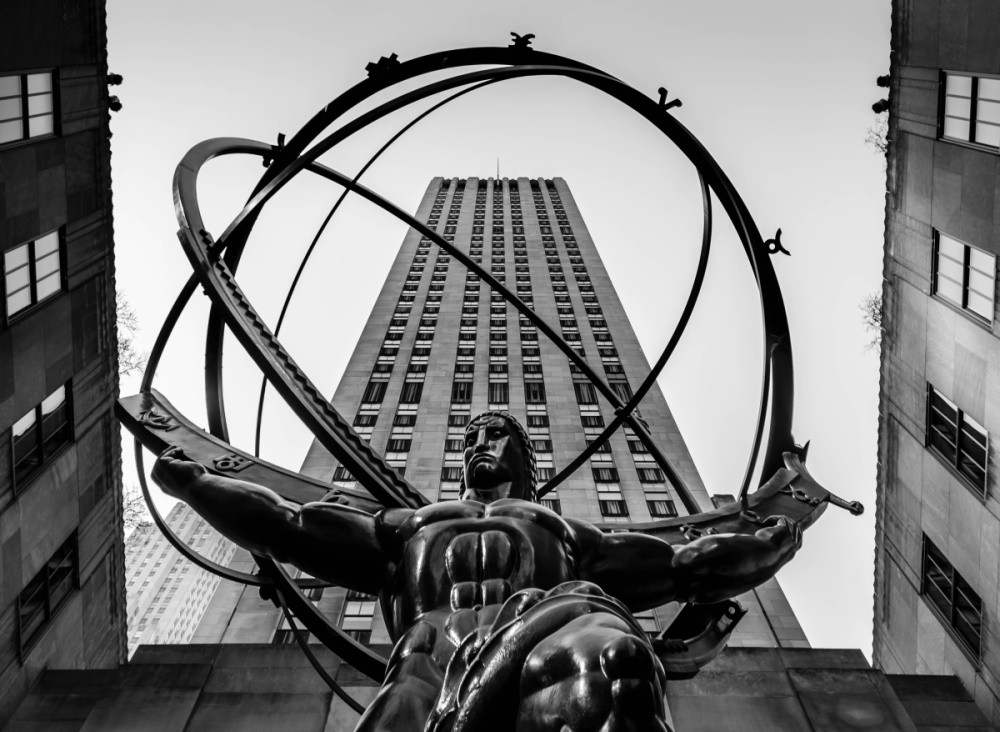Atlas Shrugged
Contradictions do not exist. Whenever you think that you are facing a contradiction, check your premises. You will find that one of them is wrong.

For the past two months, I have been reading Atlas Shrugged on my train rides to work. Considered Ayn Rand’s magnum opus, the book spans almost 1,200 pages and is famous for containing a 60-page speech that she adamantly refused to remove, even going as far as paying her publisher to keep it in. The story follows numerous characters within America’s transcontinental railroad companies and explores the attempts of socialist leaders to impose their moral ideologies through destructive policies.
At the core of the book is the idea of the power of the human mind and society’s desperate efforts to repress and control it. According to Rand, each species possesses a survival instrument - the fangs of lions, the size of elephants, the wings of birds, to name a few. Rand argues that for humans, survival is achieved through the reasoning of the mind. She illustrates how breakthroughs in knowledge from the world’s greatest minds, rather than sheer muscle power, are required to invent the light bulb, construct buildings, or perform intricate surgeries. The mind is fundamentally responsible for these innovations, while manual labor is merely a part of transforming these ideas into reality. Great minds constantly think new discoveries, not for the benefit of others, but for their own fulfillment. They refuse to conform to societal beliefs as they follow their own vision and truth. Rand contends that restricting the beauty of the mind leads to the downfall of society.
All of these ideas fall under Objectivism, a term coined by Ayn Rand for her philosophical framework. In her world, the capitalists are portrayed as virtuous, Christ-like figures who can do no wrong, while the socialists (referred to as “looters”) are depicted as irrational and unproductive, living off others in a parasitic manner. The looters choose brute force as their means of operation, embodying the motto “from each according to his ability, to each according to his need.” The villains in the story are portrayed in a corny manner, presenting capitalists as exploitative individuals who accumulate wealth and power at the expense of the less fortunate. The characters in the book lack development and are categorized as either good or bad, without much nuance. The lack of believability in the characters and the clear bias becomes evident early on in the book.
Despite the controversial ideas presented all throughout the book, the infamous speech in the book is important because it provides a clear framework that ties together the preceding 800 pages with impeccable clarity. Although I do not agree with many aspects of the moral framework presented, Ayn Rand effectively connects all the conflicts in a way that builds the foundations of Objectivism - articulating her ideas through the principles of reason, individualism, and rational self-interest from the perspective of the capitalists.
I wish Rand had taken more time to explore the grey area between capitalism and communism. Her vision aims to end all forms of social collectivism, including social security, public education, and public roads, in favor of libertarian freedoms. However, in the real world, this approach can lead to significant issues, as we observe the consequences of unchecked capitalism. Current events illustrate how companies like BlackRock can buy out real estate, driving up prices and displacing locals. Similarly, corporations like LVMH may prioritize profits over the wellbeing of creatives and the fashion industry as a whole, squeezing out every last dollar. As such, it becomes evident that a nuanced examination of economic systems is necessary to address the complexities and potential pitfalls of pure capitalist ideologies.
In conclusion, the writing in Atlas Shrugged feels clunky, and given its length - ends in a train wreck numerous times. In the rare case that it works, it’s done quite well, but these moments were far and few between. The pace of the book is incredibly slow, until the final third when it accelerates rapidly. While I’m glad I stepped outside my comfort zone with Atlas Shrugged, its dishonesty and refusal to debate the theoretical framework she creates made it hard for me to appreciate fully. The entire book could have been chopped down into two or three beautiful scenes, or just released as the 60 page monologue.
DNF
